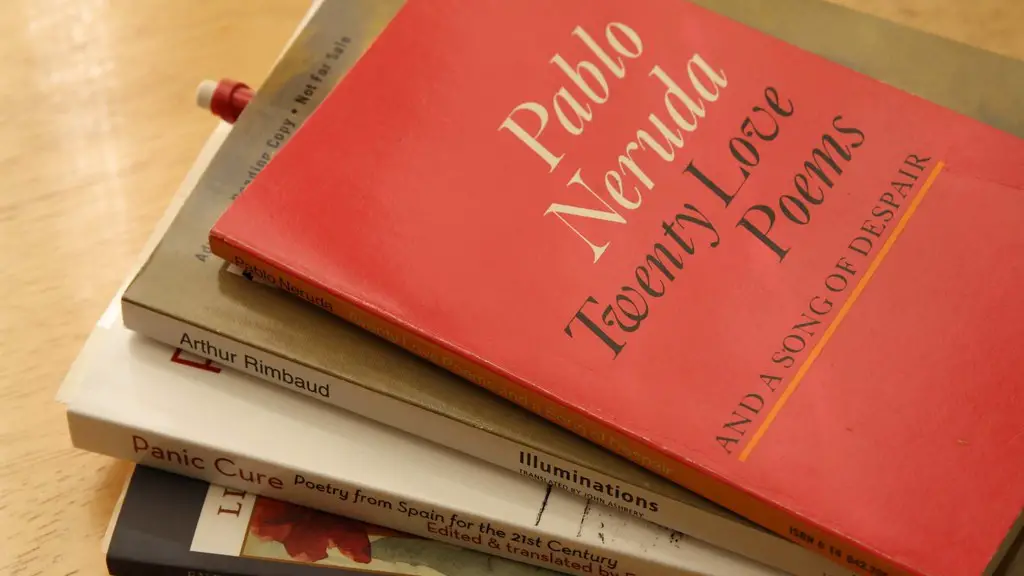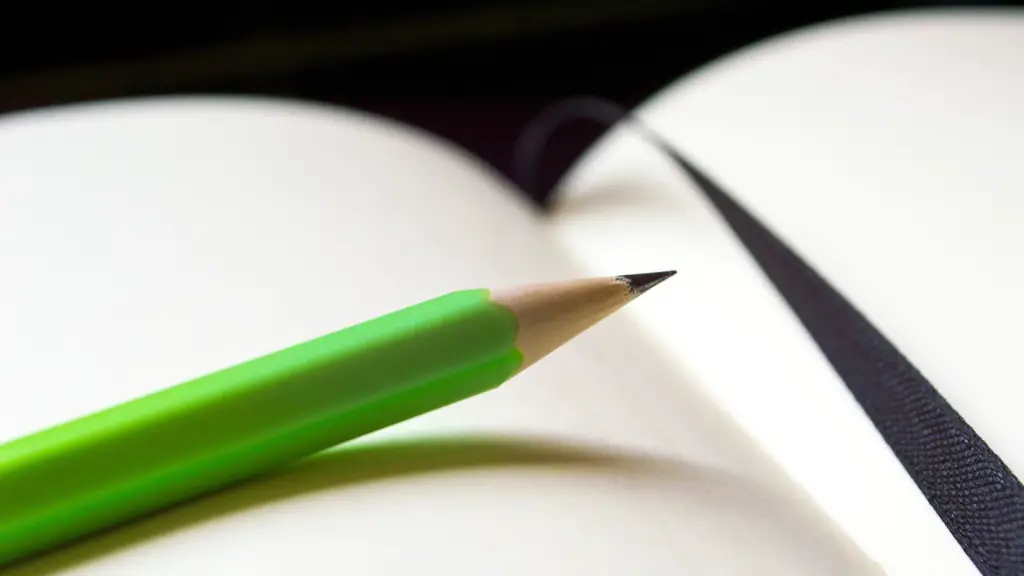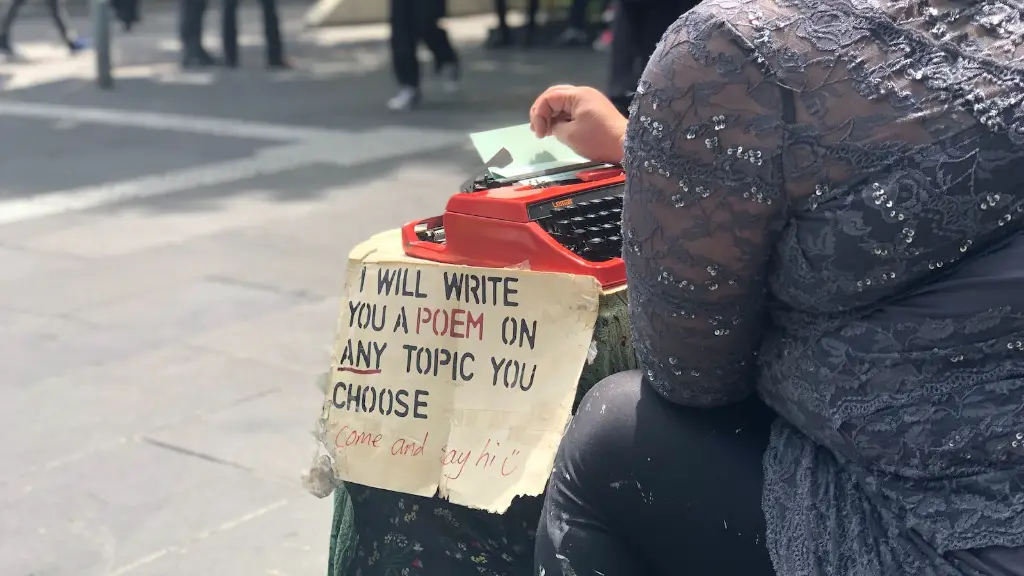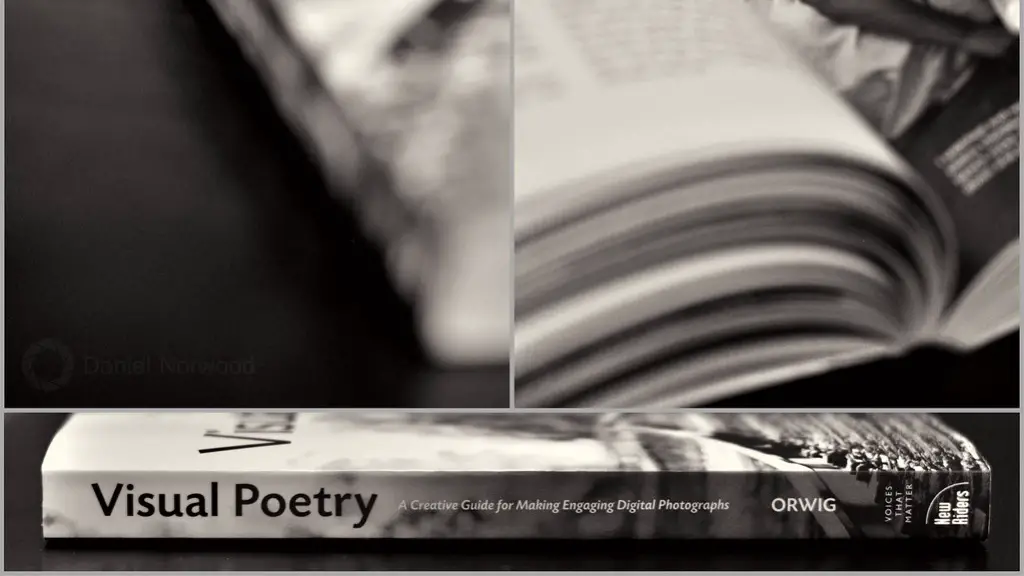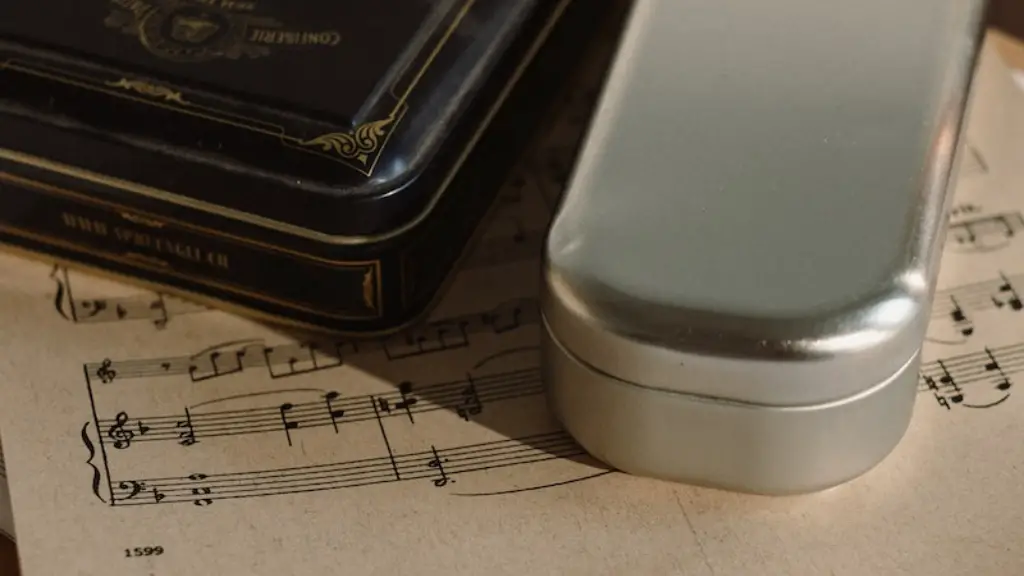Poetry slam is a form of competitive poetry, where the performance of the poem is judged by a panel of volunteers from the audience. It is an exciting and dynamic form of spoken word performance, where poets battle to perform their work with as much skill, emotion and finesse as possible. Poetry slam started in Chicago in 1984 and has now gained popularity all over the world, with competitions held in countries across Europe, America, Australia and even Africa.
In a poetry slam, poets are usually given a set amount of time – usually around three minutes – to perform their poem. Each poem should be memorised so that the poet can perform it with passion. Judges are then asked to rate the poem’s delivery, content and performance on a scale of 0-10. The highest score wins the round. The poet or team with the highest score at the end of the competition is crowned the champion.
The key to a successful slam is to write a poem that has meaning for both the performer and the audience. As poets must memorise their material, their poems should have a clear structure and be full of vivid images and powerful language. Above all, the content of the poem should be captivating and thought-provoking. In addition, poets should be mindful of the time limit – it is unlikely to win over the audience and judges if the poem runs longer than the allocated three minutes.
When performing, poets should engage with the audience and take them on a journey with the poem. A great performance encourages the audience to laugh, cry, think and the judges to score highly. Furthermore, poets should focus on their delivery and facial expressions, as these techniques can make the poem come alive. Poets should also make use of vocal techniques, such as volume, rhythm and pauses, so that the poem conveys its intended message.
When competing in a poetry slam, poets should be aware that the competition can be intimidating. Often, the pressure to perform well can be overwhelming, especially for first-time slams. Veteran poets can help to alleviate these feelings of stress by providing tips and feedback on how to perform to the best of one’s ability. Moreover, poets should take the time to relax and take care of themselves before competing.
Therefore, it is clear that poetry slam is a unique and powerful form of spoken word performance. To be successful, poets must have a well-crafted poem, complete with captivating content, and must also be confident in their own delivery. With practice, time and effort, anyone can become a successful poetry slams.
Writing Poems for Poetry Slam
Writing a winning poem for a poetry slam requires a great deal of creativity, empathy, and the ability to craft words into powerful and passionate expressions. No matter the type of poem, any poem should have a strong, meaningful story at its core. Vivid imagery and interesting words can help to keep the audience engaged throughout the performance. Furthermore, the poem should address issues that the audience can identify with, as this adds a level of intimacy to the performance.
Poets should also consider how their poem will be performed. It is important to think about the tone, emotion, and timing of the poem. In addition, think about how the ending of the poem can be used to deliver a powerful conclusion. A strong conclusion will not only wow the audience, but also leave a lasting impression.
Make sure to practice the poem as many times as possible. It may seem tedious, but practicing the poem will help to ensure that the poem is delivered with confidence. A confident performance signals to the judges and the audience that the poet is passionate about the poem, and increases the chances of a successful slam.
Finally, poets should give themselves plenty of time to craft their poem. Rushing the poem is not only detrimental to the quality of the poem, but can also increase the nerves associated with poetry slam.
Performing Poems in Poetry Slam
When performing a poem in a poetry slam, performers must garner the attention of both the audience and the judges. Although the poem should attempt to be engaging, it is the delivery that often has the biggest impact on a performance. To help ensure a successful slam, poets should bring energy and emotion to the stage.
Choosing the right venue for the performance can be just as important as the poem itself. Find a venue that is right for the poem. Consider things such as size, ambience, and acoustics. Each of these factors can have a huge impact on the success of the performance.
During the performance, the poet should focus on connecting with the audience. This can be accomplished through eye contact, dramatic pauses, and well-timed gestures. Moreover, confidence and commitment to the poem will be reflected by both the judges and the audience, and could help to secure a high score.
Lastly, the poet should leave the audience with something to think about. A powerful closing line or a thought-provoking reflection can help the audience to remember the performance for a long time to come.
Putting Poetry Slams in Perspective
Since its inception in the 1980s, poetry slam has become a powerful force in spoken word culture. It has served as a platform for people from all walks of life to do what they love: express themselves through the written word. Furthermore, poetry slams have allowed poets of all levels, from amateur to professional, to compete for recognition and accolades.
Nevertheless, the success of a poetry slam goes beyond merely winning the competition. Participating in a poetry slam gives poets the opportunity to become more confident in their writing and performance skills. Additionally, taking part in a poetry slam allows poets to connect with a supportive and creative community.
Moreover, a poetry slam is also a great way to raise awareness of social issues and to challenge traditional perspectives. Poets can use their poems to explore uncomfortable topics such as diversity, racism, and sexism, and spark meaningful conversations in the community.
Therefore, while all poetry slams aim to crown a winner, they should also be celebrated as an arena for creativity and expression. Through poetry slams, poets can encourage each other to express themselves more openly and to share their unique stories.
Reflecting Upon Poetry Slams
Reflecting upon one’s own experiences in poetry slam is an important step for personal growth. Doing this allows the poet to acknowledge the emotions experienced during the competition and to learn from any mistakes.
To gain the most from this reflection, poets should take the time to write down their experience of the poetry slam. Writing about the journey can provide clarity and help to uncover feelings and thoughts that are otherwise buried beneath the surface.
In addition, poets should allow themselves to be kind and compassionate when it comes to any mistakes made or points lost. Being critical of yourself is important, but being overly hard on oneself can be just as detrimental as not giving any effort into the poem. Thus, poet should strive for a balance between constructive feedback and self-compassion.
Finally, poets should use their reflections to identify the areas in which they need to improve. Knowing strengths and weaknesses will be beneficial in the long run when it comes to improving performance. Having this knowledge can also help to boost the poet’s confidence when it comes to competing in future slams.
Connecting with Other Poets
Connecting with other poets is a great way to build relationships in the poetry community. Through collaboration, poets can help to inspire each other, provide constructive feedback, and learn new techniques.
For instance, it can be beneficial to create a group of other poets to regularly collaborate with. These fellow poets can provide support, inspiration and advice when it comes to performance anxiety, poem writing, and even marketing tips.
Moreover, it is important to attend regular slam events. This will give the poet an opportunity to gain feedback from experienced poets and to network with other poets in the community.
In addition, many slams are now held online. Taking part in an online slam provides a great way to explore different slam formats, styles, and topics from the comfort of one’s own home.
Finally, many slams have active social media platforms. Connecting with fellow poets via social media will allow the poet to share their work and engage with other poets and audiences.
